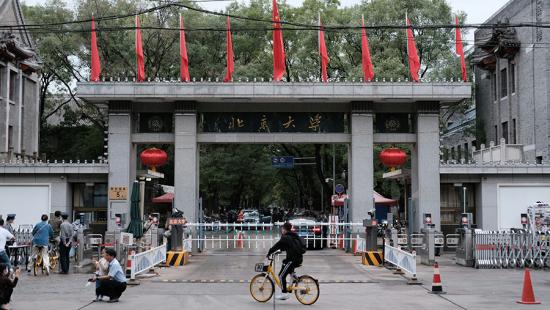Virtual CRP Graduate Open House for Admitted Students, Spring 2023

City and Regional Planning students, fall 2022. image / Anson Wigner
Overview
Virtual Open House
Congratulations on your admission to Cornell University! We are thrilled at the prospect of seeing you here in Ithaca as a student in City and Regional Planning in August and look forward to helping you decide on this next important step in your educational career. Please join us for this year's virtual open house on Friday, March 24 to learn more about us. This is your chance to find out more about the unique opportunities available to our students, meet our faculty, and ask questions of current students.
About the Department
Read more about the City and Regional Planning Department
Historic Sibley Hall
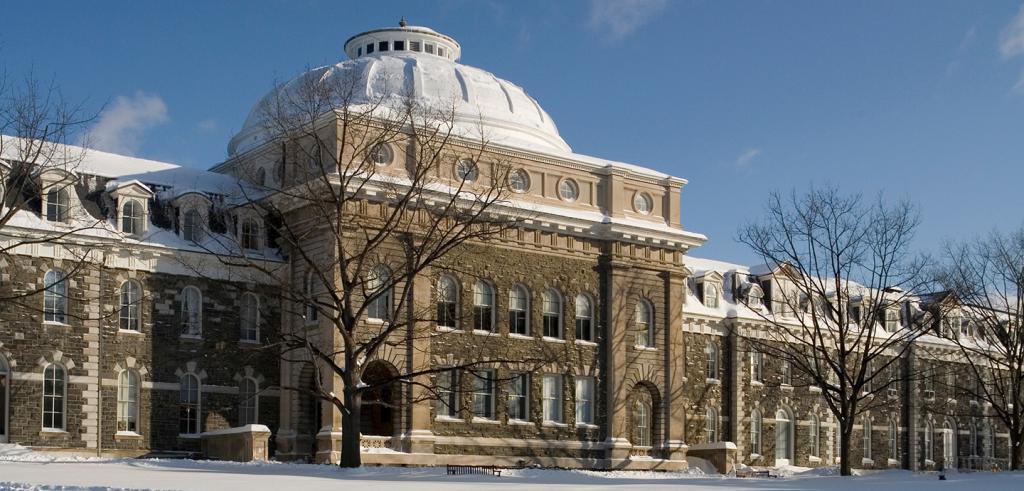
Schedule
9 a.m. Welcome and Faculty Introductions with Department Chair Sophie Oldfield and Jennifer Minner, Director of Graduate Studies
10 a.m. Learn about the Center for Cities, CRP Research Labs, and Community-Engaged Workshops
- Victoria Beard, Mui Ho Center for Cities and moderator
- Linda Shi, Adaptive Land Lab
- Suzanne Charles, Housing + Property Lab
- Jennifer Minner, Just Places Lab
- Nick Klein, Transportation Access and Policy Lab
- Mildred Warner, Local Government Restructuring Lab
-
Mitch Glass, Engaged Workshops
10:30 a.m. Student Organizations Panel for master's degree students — Hear short presentations given by representatives of organizations such as the Women's Planning Forum (WPF), Design Connect, International Planning Students Organization (IPSO), and more
Breakout Session with Mildred Warner for admitted Ph.D. students
11 a.m. Student Life Panel — Meet a panel of current master's CRP students and participate in a Q&A about student life at Cornell and in Ithaca
—BREAK—
12:25 p.m. Colloquium Lecture, led by our students with speaker Anna Zivarts, Director of the Disability Mobility Initiative at Disability Rights Washington
2:15–3 p.m. Academic Programs
Break out into informational sessions about the Historic Preservation Planning, Regional Planning, and Regional Science programs
3:15–4:30 p.m. Office Hours — Drop in to meet with department and college representatives including faculty to learn about their courses, ask questions about research, and find out more about the department
- Faculty
- Career Services
- Current Students
- International Planning Students Organization (IPSO)
Spotlight on Internships
The Department of City and Regional Planning is host to numerous resources that help current students connect with engaging opportunities beyond Cornell's campus.
AAP Career Development
The AAP Career Development Team serves as a resource for students seeking internships and employment, as well as a resource for any career questions throughout that process. The office is available to provide support in the form of 1:1 advising, group workshops, job search strategies, connecting with alums, and career fairs. AAP Career Development is available to support all AAP students on their career journey.
CRP Professional Opportunity Program
Since 1990, the City and Regional Planning Department has partnered with many local, regional, and national organizations to offer summer internships to graduate students. Through the CRP Professional Opportunity Program, students who secure and confirm professional, planning-related internships and opportunities will be eligible for a stipend in addition to the internship compensation. Normally, the stipends are awarded to students between the first and second years in the M.R.P. and M.A. programs. The internship program provides students with an opportunity to begin research in their specific field of interest and gain valuable first-hand experience.
Summer Travel Research Grants
While the department also has some funds available for summer travel associated with research, some students also pursue grants through the Mario Einaudi Center for International Studies to support summer work.
The following are examples of internships in which graduate students in CRP have participated.
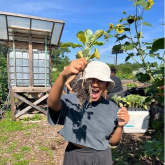
Aashka Patel (M.R.P./M.L.A. '25)
Sweet Water Foundation | Chicago, Illinois
In Englewood, a so-called blighted community on Chicago's South Side, the Sweet Water Foundation has been built as a leverage point, a model that demonstrates how we can create new forms of publics (spaces and emotions) and cultivate public trust at a neighborhood scale. I spent the summer in Chicago as a Global Urban Ecology Fellow and had the opportunity to place myself within the act of system change — a framework for disrupting the typical way of ordering and structuring systems. Through farming, education, art, research, and carpentry, the foundation employs regenerative and resourceful practices and is accountable not only to those among us today but to seven generations into the future. Every day at Sweet Water was completely different. The work done on-site depended on several known and unknown variables, including what the weather was like, who pulled up to the site, and how many hands we had on deck. Navigating the chaorder (chaos+order) required an understanding, respect, and connection with the local living systems and the land that is necessary for regeneration. Through a practice of routine, ritual, and reflection, we were able to embrace chaorder through our actions — actions which, over time, became grounded in our shared knowledge, values, and experiences. From farming to carpentry, Sweet Water has long been engaged in re-create-ing a neighborhood that has been blighted by environmental racism, redlining policies, school closures, and the food and medical apartheid. The goal has always been place-keeping…not just place-making.
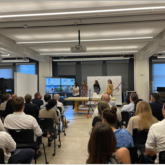
Angela Fernandes (M.A. HPP '23)
Robert A. M. Stern Architects | New York City, New York
During the summer of 2022, I worked as a Preservation Intern at Robert A.M. Stern Architects, based in Midtown Manhattan, New York City. With a history of over fifty years, the 200-person design firm has gained a reputation for a diversified portfolio of residential, commercial, and institutional projects spanning international boundaries. Every summer, the firm hosts a robust 12-week internship program involving extensive training for architecture students and recent graduates as professionals with an opportunity to contribute to ongoing projects and a range of educational sessions during the period to help them hone their software and design skills while also learning extensively about the organization of the firm and their most recent works. The highlight of the internship was Intern Design Day — a single, day-long design charrette with a team of fellow interns on a hypothetical design challenge, which ended with an opportunity to present ideas to the entire firm. As a preservation graduate, I was tasked with assisting with the development of a four-volume Historic Structures Report — more specifically, creating a complete set of detailed architectural drawings, including site plans, floor plans, elevations, and details, with the help of all the available archival plans and survey documentation.
Along with this, I helped the team edit text and assemble and edit imagery for all four volumes. Due to the integrative nature of the assignment, the project presented the opportunity to work across various teams, both internally and externally. Considering my past work experience, the internship validated my interest in preservation as a field that combined my architectural background with the technical knowledge, skills, and research of a historic preservationist.
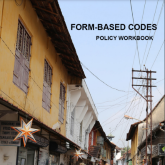
Ishan Keskar (M.R.P. '21)
World Resource Institute
My summer internship with the World Resource Institute (WRI) was an important step in the development of my professional career since it exposed me to the practical side of planning and provided me with a wide range of exciting challenges. I was one of the three interns who were based in the U.S. and helped the WRI India Team remotely. The project I worked on over the summer was centered on developing a policy framework for form-based codes for 100 chosen cities under the Smart Cities Mission. My primary task involved conducting case studies of various form-based codes that were already in use, synthesizing the best practices for the Indian context, and building GIS databases for spatial analysis. The interdisciplinary intern team taught me other important aspects of urban planning, i.e., public policy and public law. I got the chance to work in the Indian context, which is something I am passionate about, thanks to WRI's extensive network of global development stakeholders. With the exception of the occasional trip to the office in Washington, DC, this internship was entirely remote. The amazing work culture along with a healthy learning environment made the overall internship experience memorable.
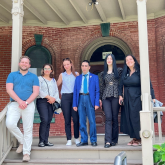
Jiaru Fang (M.R.P. '23)
University Circle Inc. | Cleveland, Ohio
This summer, I interned with University Circle Inc. in Cleveland, Ohio. I worked in the Community Development Department under Vice President Elise Yablonsky. During my time with UCI, I participated in the Community Development Benchmarking Project and researched and wrote a CDC and anchor district partner analysis as a reference. I also worked with other colleagues in transportation planning, community planning, and real estate analysis. And I was a volunteer in Wade Oval Wednesday and Saturday events. I enjoyed this summer with UCI in Cleveland, as it allowed me to get involved in community gatherings and planning.
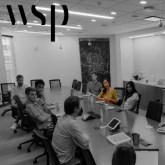
Mariam Fatima (M.R.P. '21)
WSP | Baltimore, Maryland
As an intern with the transportation planning group at WSP in Baltimore, I had the opportunity to work on a variety of meaningful and impactful projects. Not only did these projects expose me to the core of transportation planning and allow me to gain practical experience in the industry, but they also gave me the chance to contribute to the development of solutions that have the potential to positively impact communities. Through my internship, I was able to learn a range of valuable skills, including report writing, creating transport-related graphics, developing measures of effectiveness, and problem-solving with scarce data. I also had the opportunity to interact with clients and learn about grant writing and transportation in rural areas, giving me a well-rounded understanding of the transportation industry. If you are considering an internship in the transportation field, I highly recommend pursuing an opportunity like the one I had at WSP. Not only will you gain valuable experience and skills, but you'll also have the chance to make a difference and contribute to the development of transportation solutions that benefit communities.
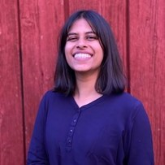
Swathi Suvarna (M.R.P. '23)
People's Action
People's Action is a non-profit national organization driven by local and state organizing. People's Action builds the power of poor and working people in rural, suburban, and urban areas through issue campaigns and elections. Over the summer of 2022, I did a remote internship with this organization. Working directly under People's Action's Research & Policy Manager Kai Thompson for the entire duration of my internship, I was responsible for researching and analyzing local, state, and federal guidelines and program content related to the availability, distribution, and expenditures of federal resources to local and state entities. As a summer intern, I compiled resources, guidelines, and reports to uncover the best practices and strategies for leveraging funds coming from the American Rescue Plan Act (ARPA) and Infrastructure Investment & Jobs Act. This research helped inform newly emerging policy and research projects with People's Action and member organizations investigating the interplay between federal, state, and local policy.
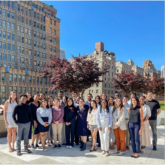
Tejal Shrotriya (M.A. HPP '21)
Robert AM Stern Architects | New York City, New York
I spent my last summer interning at Robert A.M. Stern Architects (RAMSA), a private multi-disciplinary organization with 200 employees based in New York City. Although RAMSA's main focus is designing and executing residential, institutional, and commercial construction, the firm holds a keen interest in catering to historic preservation projects as well. The practice is diversified and encompasses a vast geographical scope to include projects in Europe, Asia, South America, and throughout the United States. During my internship, I worked on developing architectural concepts for a multifamily residential building situated in Hong Kong and subsequently on a pro bono National Trust project in Cazenovia, where we partnered with the authorities to restore the fading heritage of the renowned artist Dorothy Reister. Prioritizing and understanding the people's needs, and keenly analyzing their tales describing local indigenous heritage, were central to our process. We renovated ancient historic structures while aiming to preserve the rest. Thus, interning at RAMSA not only assisted me in learning the top-down and micro-focused integrated design approach but also proved to be an ideal combination of architecture design and historic preservation planning.
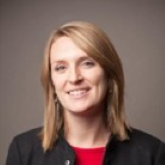
Annie Pease (M.R.P. '16)
Good Jobs First | Washington, DC
I interned in Washington, DC with Good Jobs First, a non-profit organization that does research on economic development subsidies. I worked closely with a team of researchers under the leadership of Executive Director Greg LeRoy. As an intern, I worked alongside staff to update the subsidy tracker database. Subsidy tracker is a resource for grassroots organizations looking for clear information on how much money corporations receive through economic development incentives. I worked with the researcher covering subsidies in Oklahoma and Georgia. I also helped collect data for a project comparing the number of subsidies allocated to local versus non-local businesses. My internship with Good Jobs First led me to better understand economic development and the complex relationship between politics, planning, research, and the private sector.
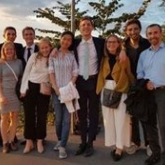
Ingvild Roald (M.R.P. '17)
Strakraft | Oslo, Norway
I interned for Strakraft, a renewable energy company in Oslo, Norway. Strakraft has a student project every summer hosted by a different department. Last year, it was the innovation and technology department, and the project was called "Sustainable Cities." Our task was to analyze the impact cities will have on energy consumption in the future. Statkraft analyzed developments on a country level and was interested in how the global urbanization trend, sustainability-oriented city policies, and technological changes might impact energy consumption. A broad task and we had some points to tick, but we were also pretty free to focus on what we found to be important. We analyzed emissions goals, transportation technology, and more. It was a lot of data gathering and analysis, and it feels like we read an insane amount of public documents and plans from cities. I used skills in GIS and modeling in Excel, as well as interdisciplinary teamwork skills as I was part of an international team of engineers geographers, economists, and political scientists.
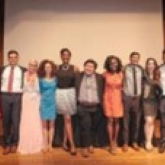
Jubeck Yongo-Bure (M.R.P. '16)
The Greenlining Institute | Berkeley, California
The Greenlining Institute is a policy advocacy organization that focuses on racial justice. Each summer, there is a ten-week Leadership Academy where summer associates learn how to be effective leaders for change through various workshops and site visits. Greenlining focuses on various policy issues such as environmental equity, economic equity, healthy equity, and more. As a summer associate, I worked with the executive director on a special project to increase diversity within the technology industry. I interviewed diversity and inclusion leaders throughout the tech field and visited various tech companies in Silicon Valley and San Francisco to gain a better understanding of their efforts to be more inclusive. At the end of the summer, I wrote an internal policy brief where I recommend best practices (using a racial equity framework) for the industry to increase diversity.
Meet the Faculty
City and Regional Planning Faculty Videos
CRP Assistant Professor Linda Shi
CRP Professor Neema Kudva, Senior Associate Dean for Academic Affairs and House Dean for Carl Becker House
CRP Professor Mildred Warner, Coordinator of the Ph.D. Program, Director of the Local Government Restructuring Lab, Professor in the Department of Global Development, CALS, and Director of the Polson Institute for Global Development
CRP Associate Professor Stephan Schmidt, Director of the M.R.P. Program
About Cornell
Learning More About Cornell
If you are interested in learning more about Cornell, please check out the Cornell Visitor Information website.





